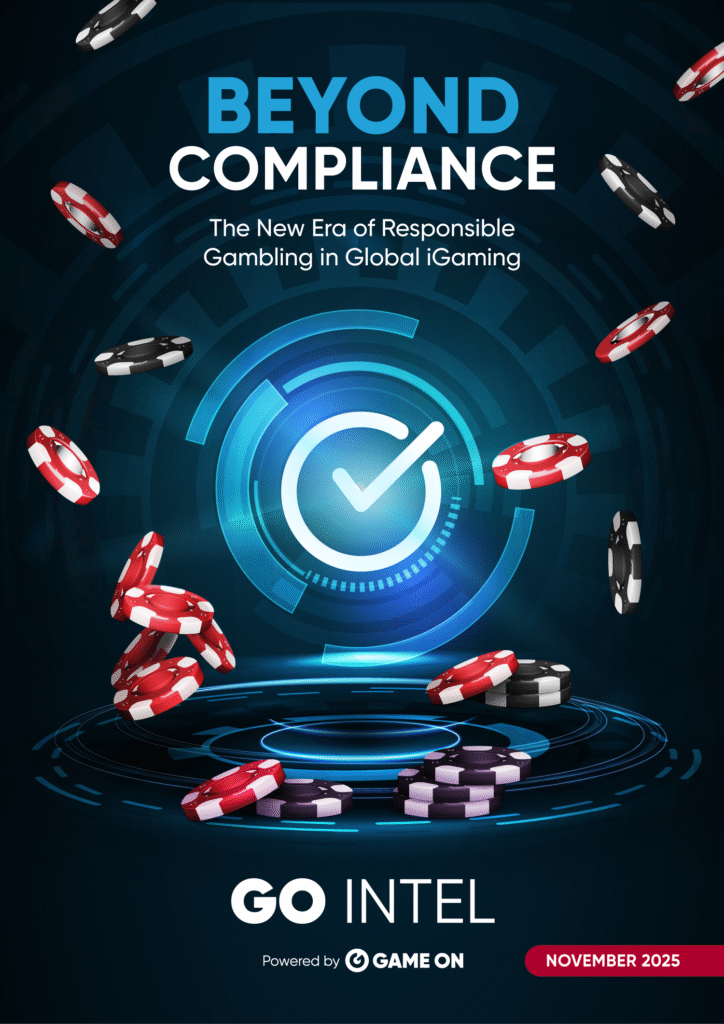Beyond Compliance: The New Era of Responsible Gambling in Global iGaming
Executive Summary
Responsible gambling (RG) in 2025 has evolved into a proactive, technology-driven discipline that extends far beyond basic compliance checklists. Across global markets, operators and regulators are shifting from a narrow focus on meeting minimum legal requirements to product-led RG strategies embedded in player experiences. Modern RG programs leverage behavioural insights, predictive analytics, and real-time interventions to help players manage their time and spending in healthier ways. This represents a fundamental change in mindset: rather than viewing RG as a box-ticking exercise, leading operators now recognise it as integral to sustainable business and customer well-being.
Technology Enablers: Innovations in artificial intelligence (AI) and machine learning allow operators to detect risk patterns and signs of harm earlier than ever. Sophisticated predictive models and risk scoring algorithms analyse betting behaviour continuously, enabling timely and tailored interventions (e.g. flags on sudden deposit spikes or prolonged play). Real-time monitoring systems can trigger instant safeguards such as pop-up warnings, on-the-fly spending limit prompts, or mandatory time-outs when risky play is detected. These tools are increasingly augmented by behavioural science techniques – for example, using ‘nudge’ principles to present safer default options or well-timed reminders that gently steer players towards moderation. Together, technology and behavioural design are making RG measures more dynamic and personalised than the static tools of the past.
Regulatory Evolution: In the wake of rising online gambling and heightened public scrutiny, regulators worldwide have intensified RG requirements between 2023 and 2025. Jurisdictions like the UK, Sweden, and the Netherlands have introduced stricter obligations – from affordability checks on customer spend to mandatory deposit limits and extensive self-exclusion systems, pushing the industry to respond with greater vigilance and innovation. The UK’s recent gambling review, for example, is overhauling game design (e.g. slowing spin speeds, removing addictive features) and implementing new financial risk checks to prevent “unchecked and unaffordable” spending. Similarly, the Netherlands has imposed stringent loss limits and duty-of-care rules, alongside a ban on untargeted advertising. In Australia, the National Consumer Protection Framework has been fully rolled out with measures like a national self-exclusion register (BetStop) and mandatory warning messages on all betting platforms. These regulatory shifts underscore a new global consensus: operators must actively prevent harm, not merely react to it. Forward-thinking companies are therefore moving in tandem with (or even ahead of) regulators, developing internal safeguards that exceed minimum requirements.
Industry Response and Business Case: There is a growing business imperative for embracing RG as a core strategy. Evidence suggests that robust RG practices build player trust, reduce churn, and enhance customer lifetime value. Players who feel protected and respected are more likely to remain loyal over the long term, contributing to more sustainable revenues. Major operators report that investing in safer gambling tools and customer care can protect brand reputation and preempt costly regulatory fines. For example, use of AI-driven interventions has helped some firms flag problematic play before it escalates, avoiding regulatory penalties “beyond compliance” through proactive risk mitigation. Internally, a strong RG culture also appeals to investors and aligns with broader Environmental, Social, and Governance (ESG) goals, enhancing corporate value. In sum, the industry increasingly recognises that the cost of unchecked gambling harm, in penalties, lost customers, and reputational damage, far outweighs the cost of prevention.
Key Trends (2025–2027): The coming years will likely see RG further integrated into all aspects of iGaming. AI and real-time data analytics will become standard for tailoring limits and interventions to individual risk profiles. Regulatory regimes are expected to converge toward stricter common standards (e.g. universal self-exclusion databases, mandatory player protection tools), even as debates continue over issues like privacy in affordability checks and the risk of pushing players to unregulated markets. Collaboration is set to increase – from data-sharing initiatives among operators (for example, the UK’s envisioned “Single Customer View” to track at-risk players across companies) to partnerships with academics for better harm research. The focus is shifting from harm mitigation to harm prevention, designing products and user journeys that are safer by default and identifying at-risk behaviour before significant harm occurs.
Challenges and Opportunities: The new era of responsible gambling is not without challenges. Operators must balance intervention with player autonomy, ensuring that measures are firm yet not overly intrusive. They face technical hurdles like refining algorithms to minimise false positives and addressing data protection when monitoring players. There is also competitive pressure: strict RG policies in the regulated sector could drive some high-risk customers to black-market operators with no safeguards, a persistent concern highlighted by channels in Sweden and elsewhere. Despite these challenges, the opportunities are compelling. Those operators that pioneer effective RG solutions stand to gain a competitive edge, enjoying greater trust from customers, preferential treatment from regulators, and a more stable player base. Indeed, responsible gambling has quietly become one of the industry’s most effective tools for long-term customer retention and brand protection.
Conclusion (Executive Summary): The RG landscape in 2025 is defined by a clear move “beyond compliance” towards a more holistic, proactive, and player-centric approach to safer gambling. Technology and regulation are driving forces, but equally important is the cultural shift within the industry acknowledging that player protection and commercial success are not mutually exclusive – they are increasingly interdependent. This report delves deeper into how AI and innovation are enabling real-time protection, how differing regulatory regimes compare and what best practices top operators are adopting. It also examines the spectrum of tools available, from deposit limits to self-exclusion, and how understanding player psychology can make interventions more effective. The evidence presented will demonstrate that a new era of responsible gambling is emerging globally – one that treats safety not as a compliance obligation but as a core value and a source of competitive advantage. The companies and jurisdictions that embrace this ethos “beyond compliance” are poised to lead the industry through 2025–2027 and beyond, ensuring gambling remains a sustainable form of entertainment in society.

